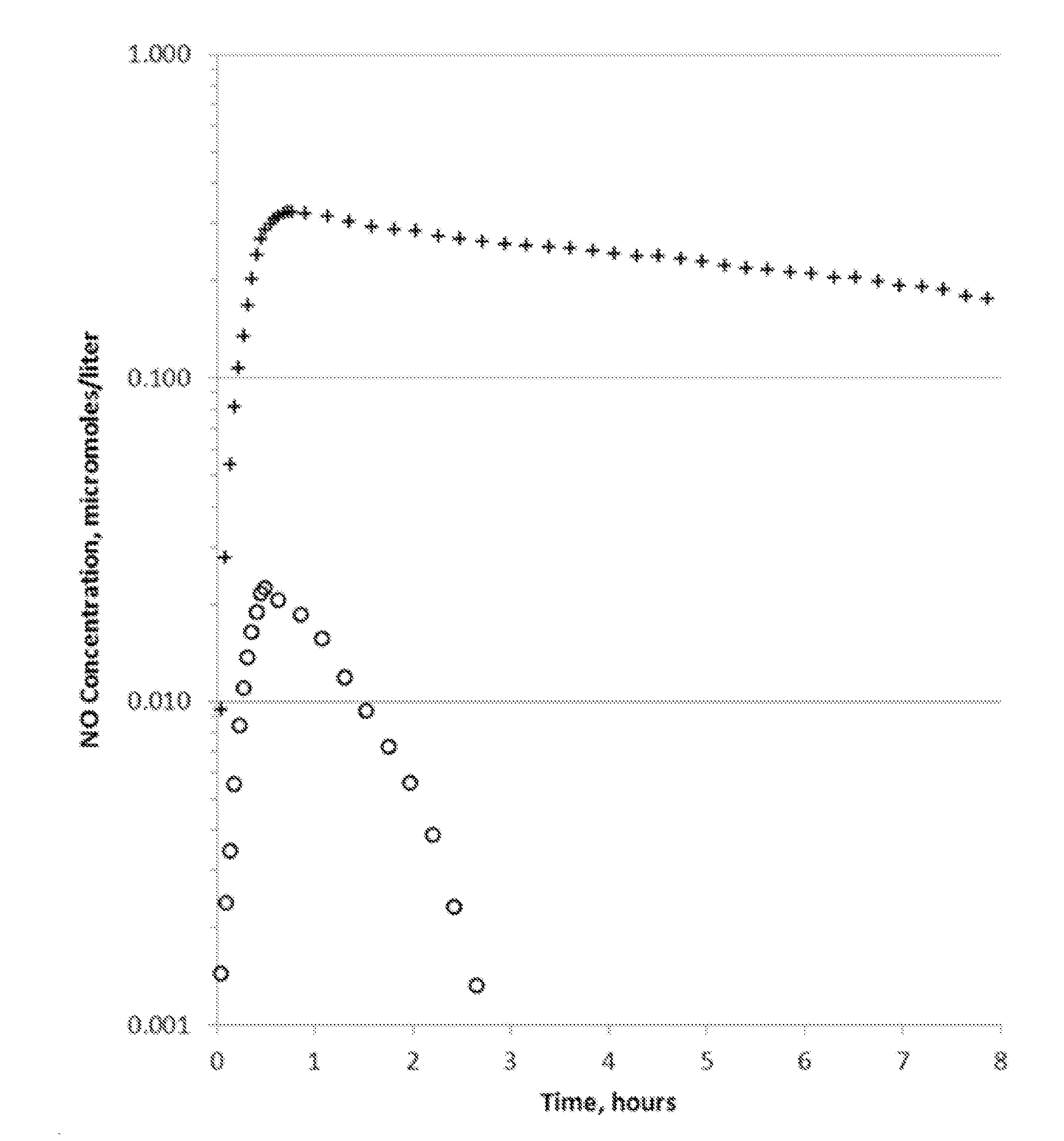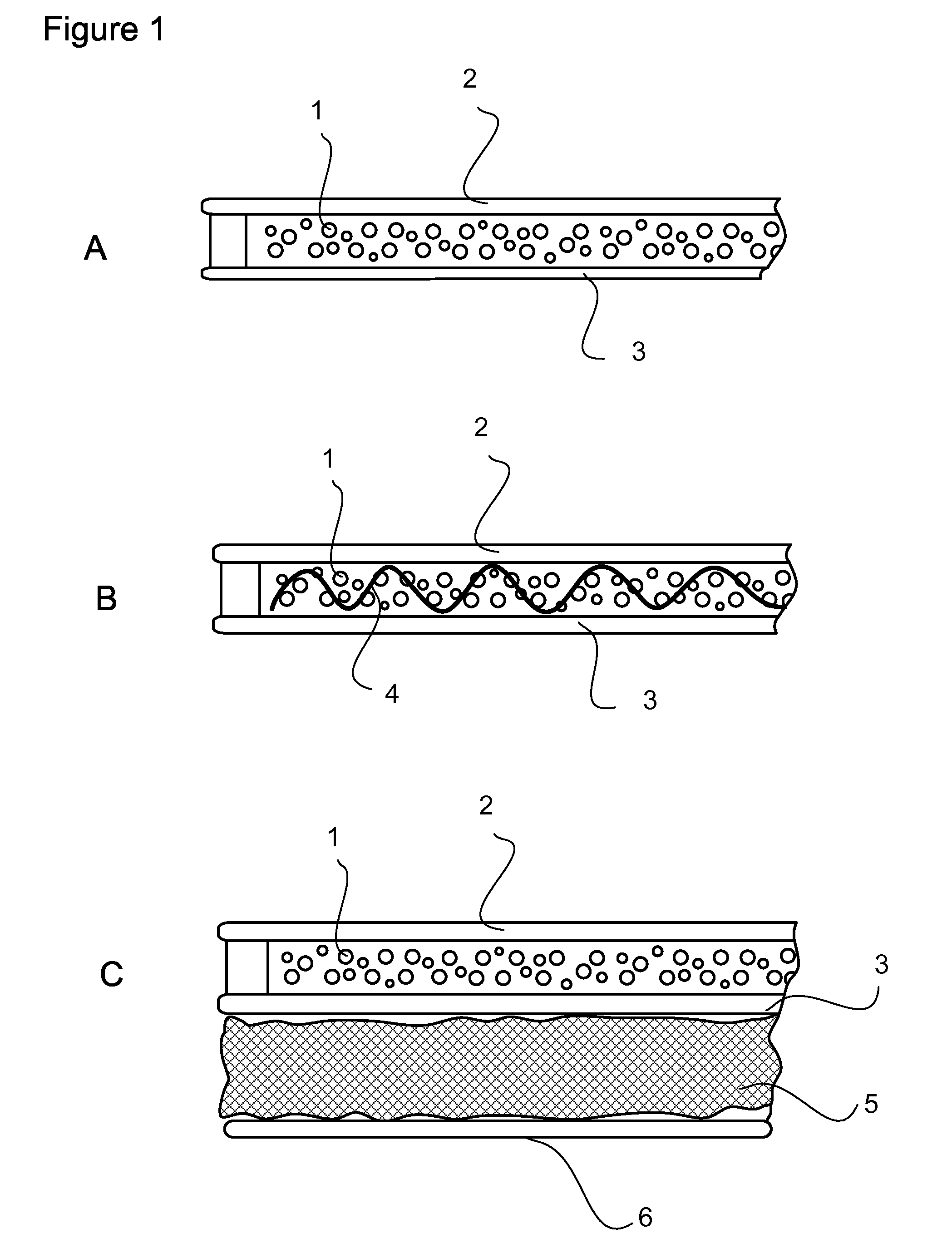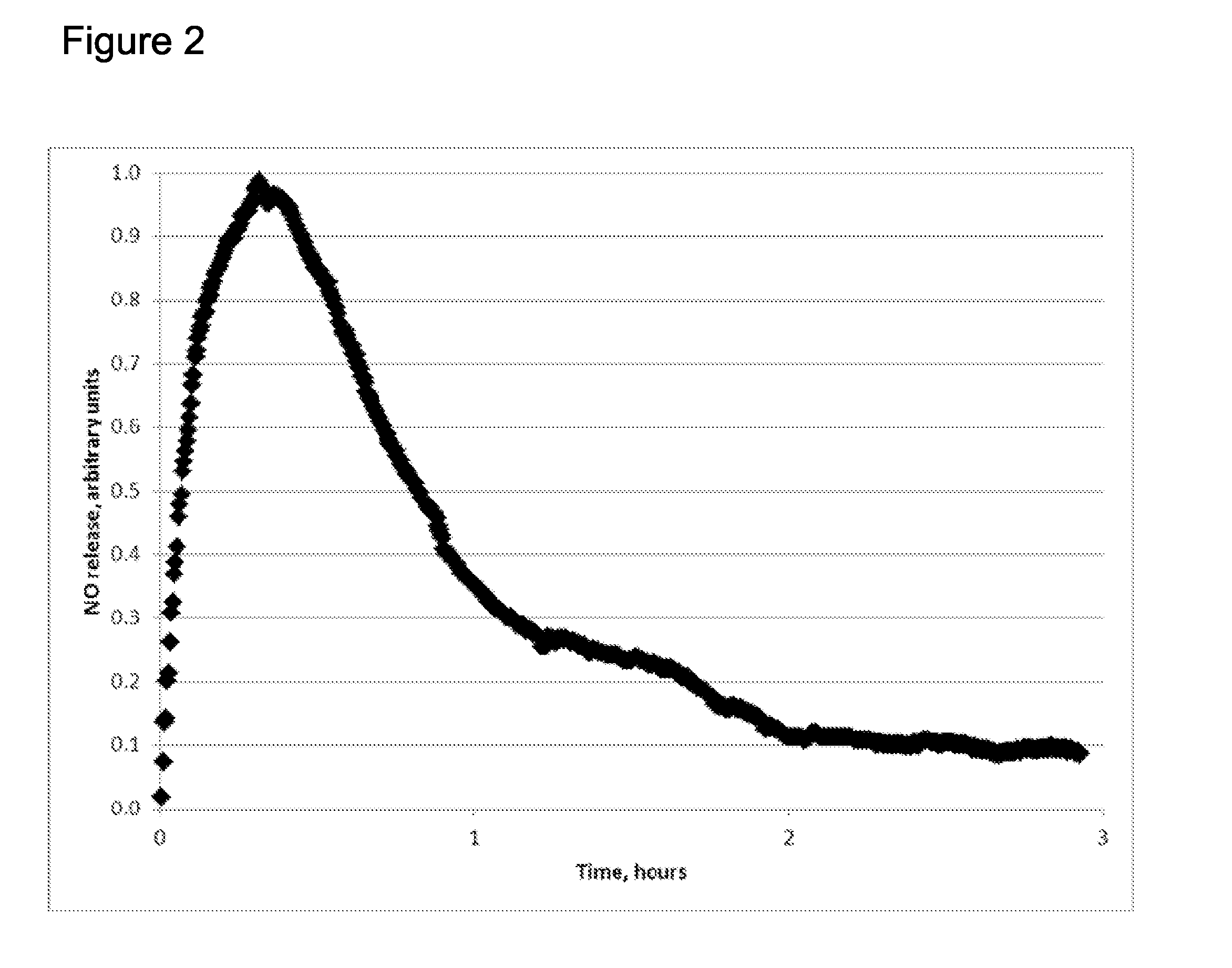Extended production of nitric oxide from a microencapsulated nitrite salt and an aqueous acidified gel
a technology of nitrite salt and aqueous acidification gel, which is applied in the direction of biocide, drug composition, aerosol delivery, etc., can solve the problems of high reactive no, not chemically stable in air or in the body, and reduce the volume occupied by reagents and water, slow the interaction, and achieve the effect of increasing the amount of dissolved no
- Summary
- Abstract
- Description
- Claims
- Application Information
AI Technical Summary
Benefits of technology
Problems solved by technology
Method used
Image
Examples
example 1
Demonstration of Time-Release of Reagent from One Type of Particle
[0051]Microparticles having 10% by weight sodium nitrite (NaNO2) in a zein matrix were prepared by spray drying a solution of sodium nitrite, zein and a volatile solvent. Zein is a proline-rich protein obtainable from corn that can be used in processed foods and pharmaceuticals as a coating and encapsulation matrix agent. It is classified as generally recognized as safe (GRAS) by the U.S. Food and Drug Administration. The solution was 10% zein (Flo Chemicals, 29 Puffer St., Ashburnham, Mass. 01430 (Lot F40000111C6)) dispersed in a mixture of 90:10 ethanol:water. The solution was dispersed into the dryer using a spinning disk atomizer. The microparticles formed in this way had diameters ranged between 10 and 100 microns and included a matrix of zein throughout which sodium nitrite is distributed. The zein is not water soluble, and when the microparticles are exposed to water, the water slowly diffuses into the zein mat...
example 2
Demonstration of Minimal NO Production when Microencapsulated Reagents are Exposed to an Excess of Water
[0053]Microparticles having 10% ascorbic acid in a zein matrix were prepared by spray drying a solution of ascorbic acid, zein and a volatile solvent. The microparticle diameters ranged between 10 and 100 microns. Ten milligrams (10 mg) of these microparticles were mixed with 10 mg of microparticles of the type used in EXAMPLE 1. The mixture was added to a beaker containing 40 ml deionized water, which was continuously stirred. The NO content of the water was monitored with the same apparatus used in EXAMPLE 1. During three hours of monitoring, no detectable NO was observed.
example 3
Demonstration of Long-Lived NO Production when Microencapsulated Reagents are Incipiently Wet
[0054]Microparticles having 10% by weight sodium nitrite in an ethyl cellulose matrix were prepared by spray drying a solution of sodium nitrite, ethyl cellulose and a volatile solvent. The solution was 12.5% ethyl cellulose (Ethocel Standard 7 from Dow Chemicals (Lot U105013T01)) dispersed in ethanol. The solution was dispersed into the dryer using a spinning disk atomizer. The microparticle diameters ranged between 10 and 100 microns. Additionally, microparticles having 10% by weight ascorbic acid in an ethyl cellulose matrix were prepared by spray drying a solution of ascorbic acid, ethyl cellulose and a volatile solvent. The solution was 12.5% ethyl cellulose (Ethocel Standard 7 from Dow Chemicals (Lot U105013T01)) dispersed in ethanol. The solution was dispersed into the dryer using a spinning disk atomizer. These microparticle diameters also ranged between 10 and 100 microns.
[0055]Ten ...
PUM
 Login to View More
Login to View More Abstract
Description
Claims
Application Information
 Login to View More
Login to View More - R&D
- Intellectual Property
- Life Sciences
- Materials
- Tech Scout
- Unparalleled Data Quality
- Higher Quality Content
- 60% Fewer Hallucinations
Browse by: Latest US Patents, China's latest patents, Technical Efficacy Thesaurus, Application Domain, Technology Topic, Popular Technical Reports.
© 2025 PatSnap. All rights reserved.Legal|Privacy policy|Modern Slavery Act Transparency Statement|Sitemap|About US| Contact US: help@patsnap.com



